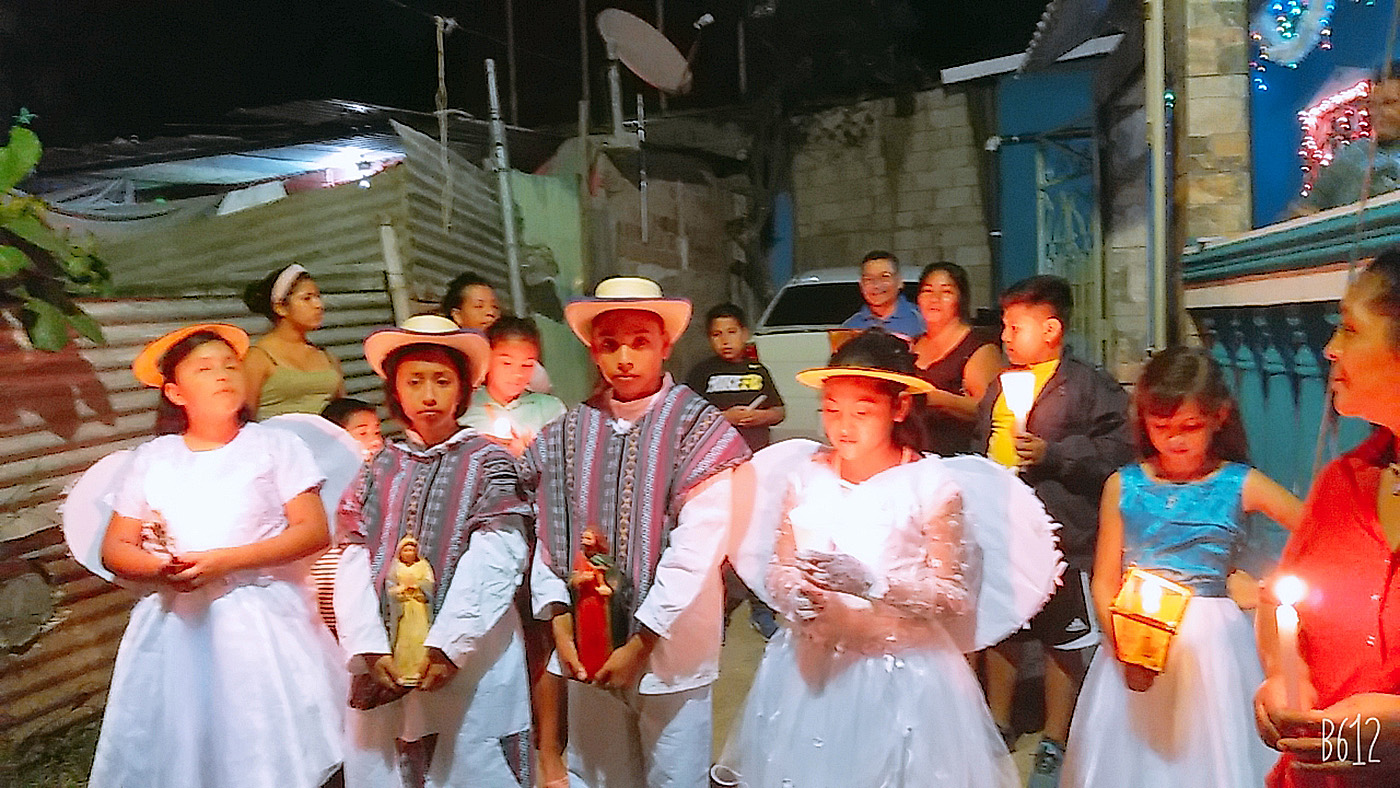
Children of the La Esperanza community dressed up for Las Posadas
Las Posadas are a favorite Christmas tradition in El Salvador. They are the reenactment of the difficult journey Mary and Joseph make as they search for an inn, posada, in Bethlehem. The Christmas story tells us this posada was a stable and the place where Jesus was born. There’s a song, Las Posadas de Navidad, that people sing when they reenact this drama. The song recounts how difficult it is for stable owners to open doors, yet in the end the people succeed and doors open.
Truly, it’s a mystery how compassion and mercy work in human hearts.
A child from the community of La Esperanza, Alex, helped me solve this mystery, at least in part. I met him in July while accompanying his family at the wake of his father, who had passed away of a sudden heart attack. The father had an old, red Datsun pick up (colored more by rust than paint). He hauled everything from cement to cows, but when running empty he’d stop and give rides (more than a few times he’d taken me into town).
We waked him in our chapel in La Esperanza. Overflow went out the door and into the cornfield, and over open fires large pots of coffee steamed and cup after cup went in every direction with mountains of sweet bread. We sang to Mary and Jesus and prayed the rosary.
Several times during the wake, Alex approached his father’s coffin, hugged it and wept. Eyes swollen and red, his face looked like a cardboard cut-out.
His grief dripped into me, and by the third sorrowful mystery—Jesus crowned with thorns—I was remembering that January afternoon in 2018 when I visited my own father for the last time. He was in a small viewing room at McCormick & Son Mortuary in Laguna Hills, California. We were alone. He was on a gurney against a green wall. At his feet and head, hung floral prints of smooth phlox and purple toadflax. Opposite him, on a wooden table, two candles burned and between the candles a bowl of water.
I paced the length of his six-foot-two-inch body several times, then stopped at his head, looked onto pale eyelids, and slowly leaned until our faces touched. His 85-year-old cheeks were cool—nose, forehead, and temples silent and peaceful. I couldn’t remember the last time we were that quiet or close to each other (my father suffered from an anxiety disorder, possibly PTSD, that was never diagnosed or treated). He wasn’t Catholic, so there was no wake or the traditional nights of rosaries and prayer. He would be cremated as other members of the family had been. That’s the way he wanted it. Looking back now, I believe through his suffering he understood as well as anyone how much our existence depends solely on God. That’s the greatest gift he gave me. Even still, as he grew older and his anxiety worsened, you could feel him pulling away even in a hug.
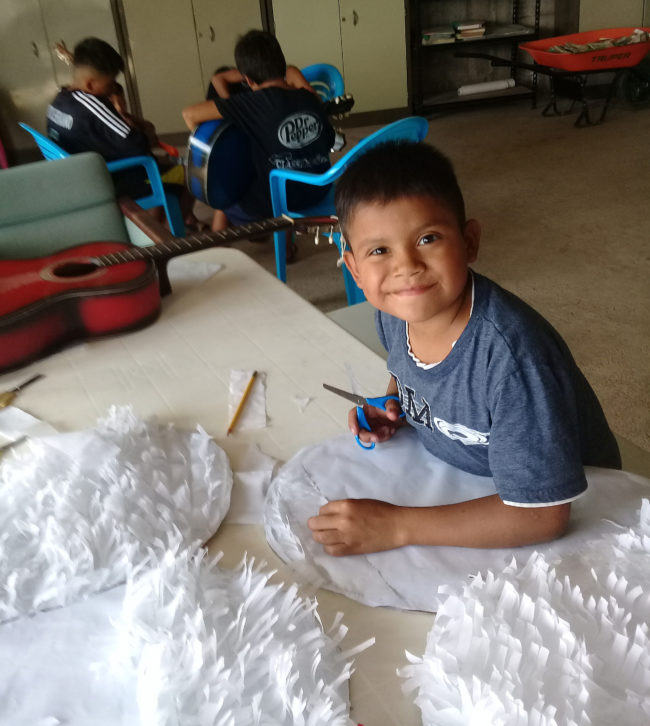
Alex working on angel wings for the Posadas.
Last week I visited Alex (as I do regularly now) with the library’s mobile unit, our orange wheelbarrow. We were reading books and playing the ukulele when he abruptly asked if I missed his father. A cow was tied to a nearby tree and ducks, chickens and dogs scurried among us as we sat on the rocky path in front of the family’s shanty. “Yes, Alex, I miss him very much,” I said and gave the child a hug.
I then asked him what the greatest gift he ever received from his father was. Without hesitating he jumped to his feet, threw up his arms, and shouted, “Life.” His face of surprise and joy made me think of Christmas mornings as a child. My father was there with my mother, brother, and sister. A fire in the fireplace, all of us beside the Christmas tree, opening gifts, sharing the peace of family. Yes, that’s when I felt closest to my father.
Now Alex and the children of La Esperanza are preparing our posadas. We’re making angel wings of cardboard, collecting material for costumes, and practicing songs. The children will go in procession through the streets of La Esperanza dressed as Mary, Joseph, and the angels.
We’ll make our way to the chapel; inside, a group of people who represent stable owners, will be waiting. We’ll knock at the door and sing Las Posadas de Navidad, and those inside will give way and open while they sing, “Enter, holy pilgrims, and receive this poor abode from humble hearts.”
And we’ll make our way into that place where God is an infant in a manger; where our poverty becomes our greatest connection to others; and where, as a friend here, Sister of Charity Peggy O’Neill, often says, “to be human is to feel our own pain and the pain of others.”
Photos by Rick Dixon

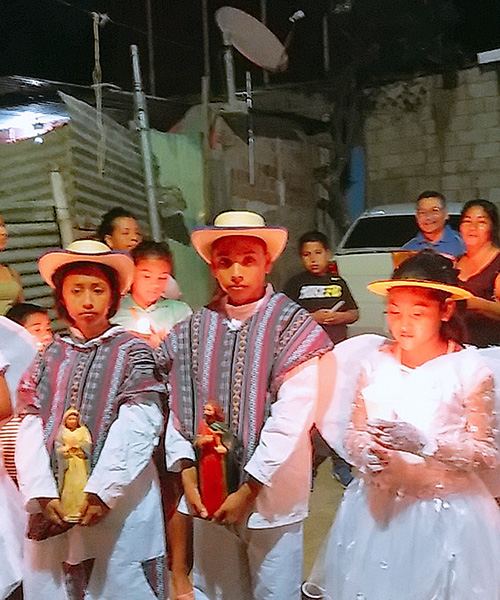

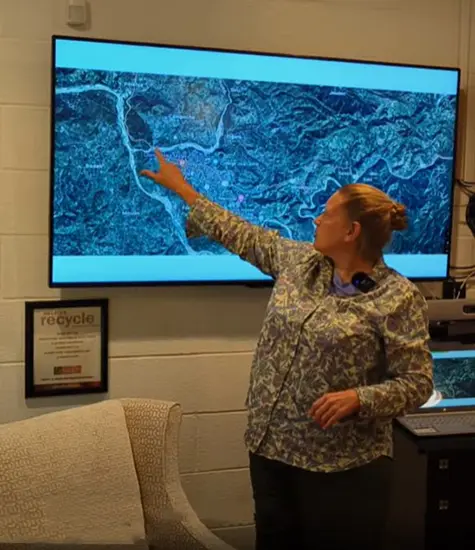
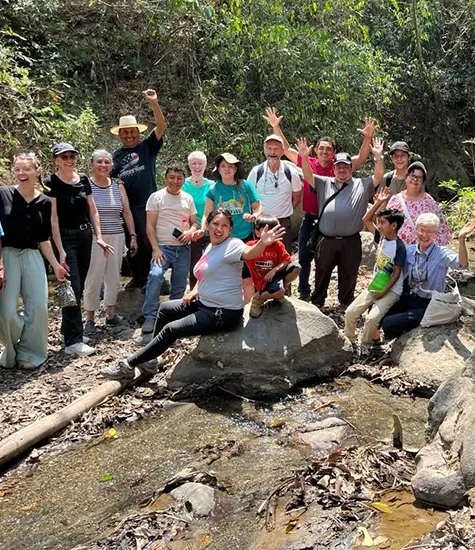
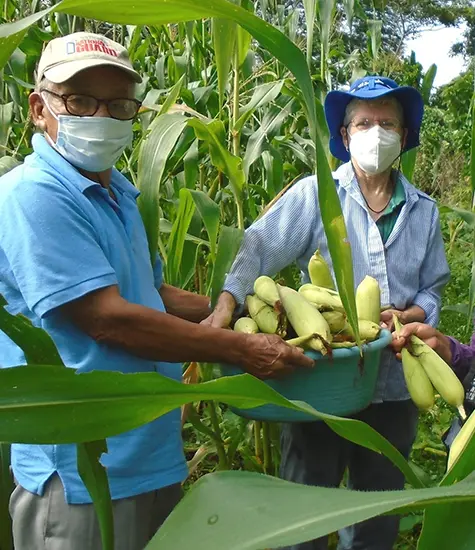




Lovely reflection. Thank you for sharing from your heart Rick